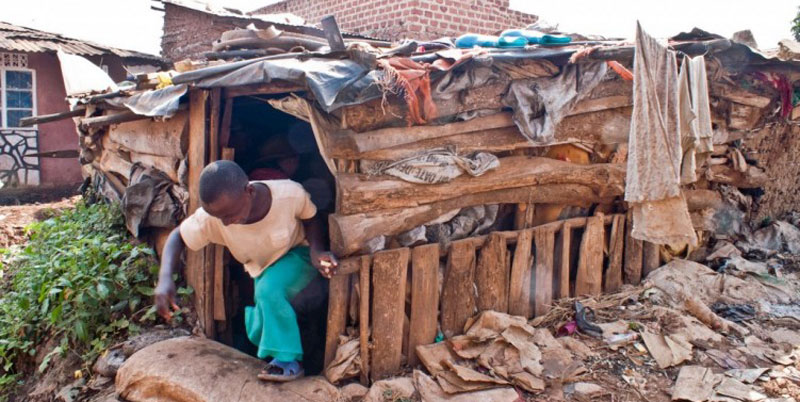human traffickingFeatures
Why crunching poverty is a warning sign for those who love peace
More often than not, 000 accounts in one bank as it was announced at Crane Bank recently is not something to take lightly.
The closure of such a large number of accounts in just one bank is a serious pointer to the worrying levels of poverty and a sense of hopelessness in Uganda’s society today.
For whereas most people use banks as a tool to mobilise savings to educate their children, the truth is that some are so broke to be able to save even Ushs1,000=
The reality of poverty in Uganda hit me after I decided to pay a visit to my uncle Sam Kiggundu in Busega, a suburb of Kampala whom I thought was among the well off persons because I thought he has a decent teaching job with one of the best schools in Kampala.
Uncle Sam earns Ushs350,000 a month, I learned this from his wife. But the high cost of sustaining his large family of five children and a wife in Kampala, not only condemns him to a life of desperation but has also made him a perpetual debtor.
Indeed, if analysed closely, his salary is hardly enough for him let alone his family. Because after deducting Ushs200,000 for rent, there is barely anything left for the wife to manage.
That particular day I visited uncle Sam, his wife told me my uncle had left her with just Ushs5000 which is just US$1 to kuyiya ‘manage’ with. She was expected to buy charcoal, food, source and pay for all other daily stuff that enables the family find food on table.
The Ushs5000 really set me thinking; Is his wife a wizard to plan with this amount of money? I sat her down to find out what magic she uses to be able to cope up with the Ushs5000 Kameeza tax as the money is commonly referred to.
She told me that she spends the money as follows:
Charcoal worth Ushs1,000, which she uses to cook one meal.
Ushs850 for a quarter kilogram of sugar,
Ushs2000 for I kg of posho and 1,000/= for ground-nuts source.
When you look at this list, you get the view that this family lives a destitute life. Not only do they subsist on a routine menu of Posho and G-nuts, the children suffer from the psychological effects of deprivation such as seeing meat at the neighbours and noticing that their eyes are almost popping out.
But besides the fatigue that is associated with surviving on routine foods, I worried that my uncle’s family members suffer from malnutrition – which exposes them to serious health risks such as anaemia and other diseases arising from vitamin-related deficiencies.
I understood why funerals in many villages like my uncle’s are always God-send because it represents the best chance for them for a descent meal in a life time.
The evidence from my uncle’s home revealed why more people these days spend their time sleeping in green parks of Kampala. Others have adopted chapati and beans – popularly known as Kikomando.
In Namasuba, where I live, when I told a friend that my family of 5 cannot live within 10k a day, she was so surprised. On the contrary she told me that on the contrary, she uses the same amount of money for five days, which means that she can survive on Ushs2000 – below the notorious poverty line.
Unfortunately, this is the kind of life that the majority find themselves in.
When it comes to transport back home in the evening, you will be forgiven to think that the long queues you see trekking home are those of people lining up to be given manna from heaven yet these are the people who cannot afford transport home and instead decide to foot.
In a country like ours, is it any wonder that at Pastor Kakande’s synagogue Church at Mulago people were recently seen lining up for holy water which is supposed to bring them luck so they don’t go completely hungry.
If people indeed believe in the holly water gimmick, isn’t it time that our government got scared because this level of desperation will sooner rather than later build into resentment or political violence.
At a time when people are so taken up by the desire to keep peace, considerations such as economic well-being of people has not come to the forefront. Instead, focus has tended to go towards politics. On the contrary, hopelessness arising from deprivation appears to be a growing source of insecurity.
Fore warned is fore armed.
Comments



















